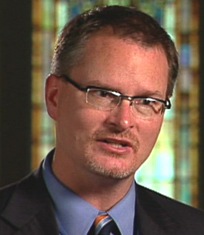 It has become fashionable for some to criticize the Church. In spite of what some say, most of the criticism comes from friendly fire more than the media — though the media has not always avoided unfair stereotypes. Yes, sometimes I tire of the criticism … but …
It has become fashionable for some to criticize the Church. In spite of what some say, most of the criticism comes from friendly fire more than the media — though the media has not always avoided unfair stereotypes. Yes, sometimes I tire of the criticism … but …
Sometimes the Church has gotten it wrong and sometimes the Church gets it wrong. So what do we do when this happens?
It is not uncommon to hear that Church officials do their best to keep the whole thing quiet, and nothing stands out today like what the Catholic Church did for decades on abuse of children by priests. Another way is to deny wrongdoing vociferously or claim victimization. There’s a wiser way than all this, and Adam Hamilton’s new book wisely and compassionately points us in the direction of humility and reorientation.
His book is called When Christians Get It Wrong
, it’s a short book, and it’s a wise book. I don’t always agree with Adam, but I always read him because he’s a Christian voice of reason. I think this would be a great book for adult Bible studies, even if people in the group disagree with him on the stances he takes. Why say that? Because it models how to disagree and how to map differences and how to chart a path that is compassionate.
, it’s a short book, and it’s a wise book. I don’t always agree with Adam, but I always read him because he’s a Christian voice of reason. I think this would be a great book for adult Bible studies, even if people in the group disagree with him on the stances he takes. Why say that? Because it models how to disagree and how to map differences and how to chart a path that is compassionate.
So what do you think we’ve gotten wrong? What can we do about it? What is being done about it? How about locally: What happened in your local community of faith?
After the jump I will sketch what Adam discusses.
Sometimes Christians are plain and simply UnChristian, as in insensitive, critical, judgmental and mean-spirited. In short, sometimes Christians don’t live up to the Jesus Creed of loving God and loving others. Adam points to our wrong motives, not seeing our own sins, majoring in minors and being two-faced.
Sometimes Christians get it wrong on science and politics. We blog here often about science and faith, and RJS has been working out her own ideas in public with us, but I think we can say we want to get it right and we want to do this in a responsible way. Some Christians are afraid science will prove our faith wrong. Adam thinks the issue here is fear. I’ll avoid the politics issue since we touched on it Wednesday.
Sometimes Christians get it wrong when speaking of other religions: he sketches strong exclusivism, universalism and inclusivism. Issue: most Christians know next to nothing about other religions, but Adam’s own study of other religions has strengthened his own Christian faith. Adam believes there’s a wideness in God’s mercy.
Two more issues he addresses: when bad things happen — diagnosing suffering as God’s judgment — and homosexuality (I disagree with Adam’s stance on this one although I think Christians have not dealt with this issue well).

